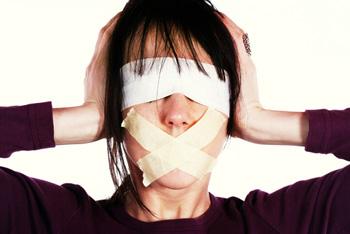When is Censorship Legal
In most
cases, individuals in the United States have the Constitutional right to free
speech. However, censorship is sometimes legal when speech or materials are a
danger to society or could incite violence.
For example, censorship of child pornography has
been upheld by the courts. Although individuals have the right to freedom of
expression, they do not have the right to endanger the welfare of children.
Censoring may also take place when newspapers or
the media attempt to publish items which could be harmful to national security.
For example, publishing the names of spies currently living in other countries
would endanger both national security and the lives of the spies.
In some cases, parents and educators also attempt to
censor books to which children have access. Oftentimes, this is done when
material in the books is considered inappropriate for children.
